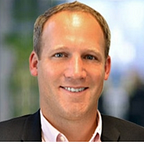Carta’s Henry Ward says it’s time for investors to share the wealth (and he’s right)
Our investment in Carta
For all the talk you hear about disruption in the valley, it’s still a pretty traditional place when it comes to how equity is managed and distributed. Most of the wealth goes to founders and investors; rank and file employees and members of the gig economy see very little of the value they’ve helped to create.
Carta, the equity management platform that started life as eShares, has taken a first principles approach to rebuilding the ownership infrastructure from the bottom up, beginning with the cap table. As the central registry of asset ownership across 11,000 companies and 700,000 shareholders, Carta is driving network effects that will bring liquidity to private markets through a starkly different vision for how companies are owned and wealth is shared.
This is why we’re thrilled to be backing Carta, who announced their $300M Series E round today at a $1.7B post evaluation.
Last year, we started talking a bit more about our growth strategy when we announced our latest fund. While a large part of that capital ($1.36B to be exact) is being invested in existing Lightspeed portfolio companies as they enter the growth phase, we are funding more and more companies new to the portfolio that demonstrate compelling product-market fit behind extraordinary founders and teams.
Carta is such a company, and now joins the family of companies in our Select funds global growth portfolio, including but not limited to Epic Games (Fortnite), Rubrik, TripActions, Oyo, Seismic, BetterUp, Udaan, EZCater, ifChange, and Affirm.
Carta’s unique vision for changing how capital markets operate starts with its co-founder, Henry Ward.
Back in 2012, Henry and Manu Kumar noted that purchasing shares in a company was the same whether for a railroad or a crypto start-up: Physical stock certificates were issued and companies used spreadsheets to manage capitalization tables. It is an unwieldy system that makes it difficult to share information and can lead to costly errors.
When Henry first approached investors with his idea for a cap table software, he was turned down all over Sand Hill Road. The market was too small, they told him. And, frankly, it was a commodity business they wanted no part of.
What the founders saw was an opportunity to provide the entire ecosystem of financial products and services to startups. Digital cap tables were only the beginning. Over time, the company began to add on adjacent businesses — 409a valuations and fund administration for example — by following the flow of funds and correcting the inefficiencies across the private market. Carta now manages $530 billion of assets.
Much of the company’s success is due to Henry’s go-to-market playbook; Carta identifies smaller markets where one company can eventually dominate. This ‘N of 1’ market strategy has led to a strong network effect for Carta. The more products and services it offers, the more reasons companies have to standardize on Carta’s platform; the more startups that adopt Carta, the more likely investors will bring the rest of their portfolios to it.
Carta also serves a higher mission. It wants to fix a capital market structure that is antiquated and broken. Securities are still largely issued on paper, there are intermediaries at every step, and all of them charge high transaction fees. By adding on these seemingly commodity offerings and automating them, Carta turns services into software while making transactions streamlined and transparent.
But Carta’s ultimate goal is much loftier: to create a registry of ownership that enables private exchanges. The company wants to solve the problem of liquidity lockup that plagues so many private companies, by allowing employees to derive value from the equity they’ve accumulated without having to wait for a liquidity event like an IPO.
While there are a handful of companies trying to create a secondary marketplace for private equity, they’re usually limited to top management, and they often charge usurious transaction fees. Only Carta is taking a bottoms-up approach to transform capital markets.
Today, the vast majority of the wealth created by startups goes to a handful of executives and investors, nearly all of them men. (Henry spoke at our first-ever Lightspeed Negotiation Summit earlier this year, in partnership with #Angels and Twitter Women, to address this directly and talk about solutions.) The fundamental idea behind Carta is to create wealth at every incremental level of companies. It’s to allow more employees to take control of their financial destiny, and to enable a workforce of owners, not just employees.
It’s an idea that’s not merely disruptive, but radical. And it’s about time.
